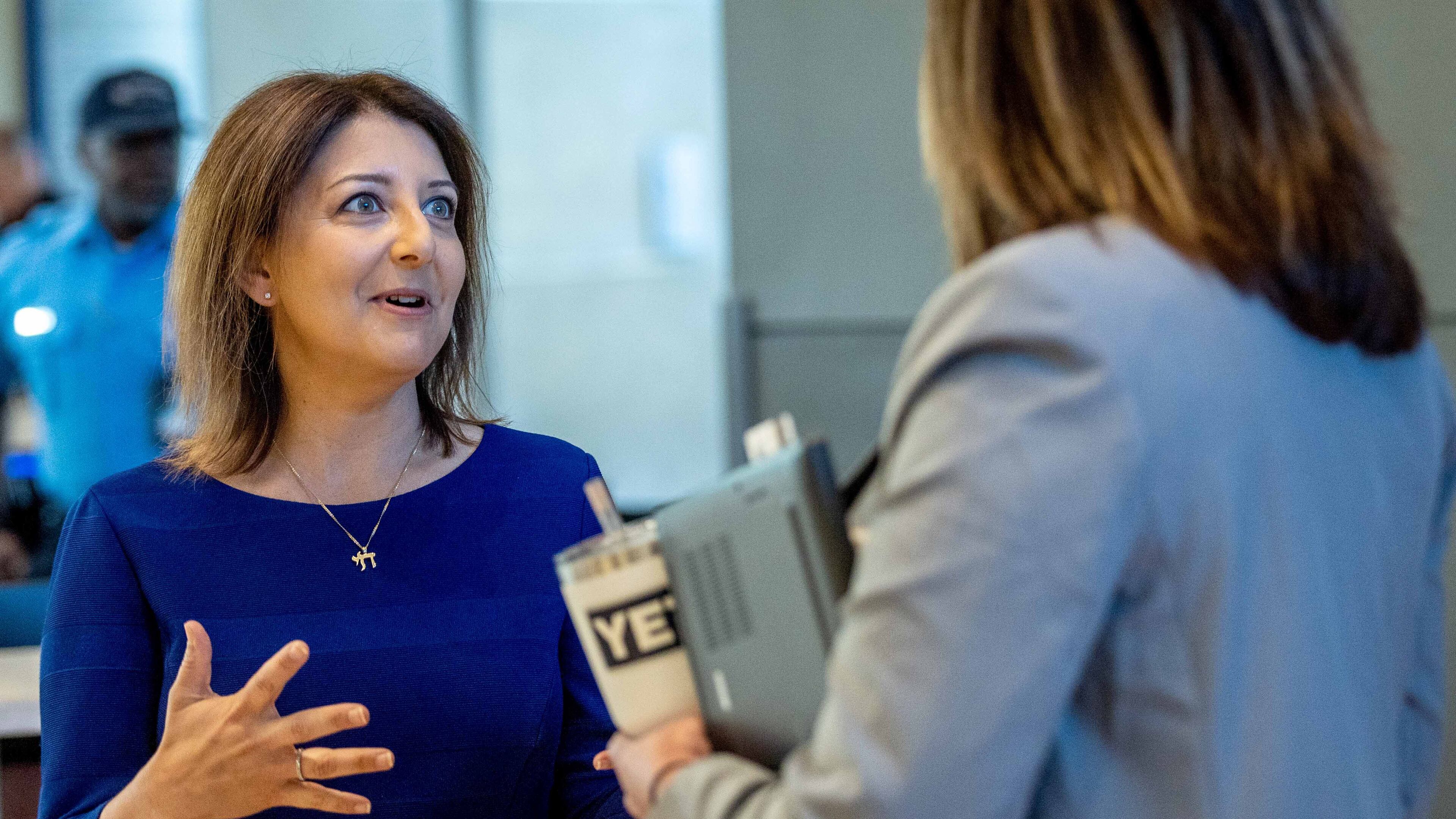CDC Director Mandy Cohen’s advice on coping with ongoing COVID-19 wave

Less than two months into her job as the new director of the U.S. Centers for Disease Control and Prevention, Dr. Mandy Cohen is confronting a COVID-19 wave. So far it’s a shallow one, compared to previous years, but still taking a toll.
In the week ended Aug. 19, the latest data available, Georgia hospitals reported to the CDC that 624 new patients were hospitalized with COVID — a 34.8% increase over the previous week. For the week ending Aug. 30, the Georgia Department of Public Health recorded 24 new COVID deaths.
In a call with reporters on Thursday, Cohen laid out actions the CDC is taking as the fall and winter approach, and her advice on steps for people to take. Here are some of her comments, edited for length and clarity.
A COVID-19 wave, but a shallow one
“So in the last week, we saw COVID-19 hospital admissions at around 15,000 people in the hospital. But it’s important to note that at this same time last year, that was closer to 38,000 people in the hospital. So while we’re increased, we’re at a level that’s less than half in the hospital of what we saw just one year ago. I think that is because we have more tools and more immunity than we’ve had before.”
Infection season
“We are in our strongest position yet to fight COVID-19 and the viruses responsible for the majority of fall and winter hospitalizations — which as a reminder, is not just COVID, but is COVID, flu and RSV. On the immunity front, 97% of adults do have some protective immunity from COVID-19. Either through vaccination, or prior infection, or both. But I want to caution that the strength of that immunity could change over time.
“We have more tools than ever before. We have vaccines for all three major fall and winter respiratory viruses. And for the first time, we have an RSV vaccine, for older adults and an RSV immunization for our infants. But the important part is that we have to use these tools.”
The latest COVID-19 booster
“The updated COVID-19 vaccines are expected to be available by the middle of September. Vaccines continue to be our best protection against hospitalizations and death. And in the case of COVID vaccines, these vaccines not only reduce hospitalization and death, they also reduce the likelihood of long COVID.
“If someone is behind on vaccines, what should they do? So as we sit here, it’s going to be September, and we’re about two weeks away from having a new version of the COVID vaccine. What we are saying is, for most folks, it is likely the right choice to wait those two weeks for the updated version.
“But there may be a small group of folks either who are older or have more underlying conditions. If they are behind, they should talk with their doctor about whether or not they should get the current version of the vaccine now. But I want those folks to know that if they do get that the current version of the vaccine, it may mean they won’t be able to get the new version of vaccine for for a number of months.”
Sold-out test kits
“As we move out of the state of emergency, there are differences — in terms of both authorities and resources — to continue for the federal government to be the dominant purchaser of things like tests. Now, that is the majority of the way where people will be able to not just get a test but also get a vaccine this this season.
“There is no shortage of supply. And so making sure that those are on shelves is certainly, I’m sure, important for for those pharmacies and others that that sell and stock those.
“For those who are uninsured, there is going to continue to be an option (for free tests), even though we are outside of the public health emergency.”
Affordable vaccines
“The bridge program is one place where the Biden-Harris administration had additional investment to make sure that those who are either uninsured or underinsured continue to have access to free COVID vaccines.
“CDC have partnered with our local public health departments, with federally qualified health centers and with pharmacies around the country to have free vaccines available for the uninsured and underinsured.”
One visit and done
“We want to make sure that folks know that getting both your COVID and flu vaccine at the same time is actually a best practice. So if you want to do one visit and be done, that would be great.
“A reminder that the RSV vaccine is only available for those who are 60 and older. (Note to readers: In addition, a monoclonal antibody to protect against RSV was also approved for babies.)
“And so again, for those folks, we encourage them to talk to their doctor about when and with what other vaccines they might want to get those together.”
More Stories
Keep Reading



